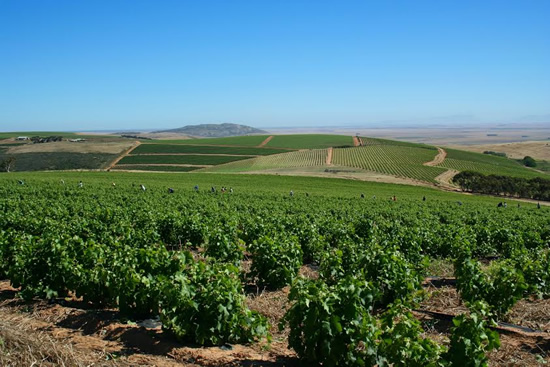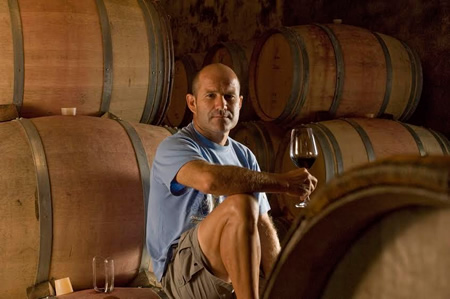As harvest 2014 draws closer, we met with a cool, calm and collected Charl du Plessis – Spice Route Wines winemaker – and asked him to share his thoughts and predictions on this year’s harvest.
“Overall our dryland vineyards are in great condition – even better in comparison to last year. The unusual heavy rainfall we experienced in the second week of January 2014 was of no detriment to our vineyards, but rather of much benefit, allowing the grapes to develop at an optimal level.
The Swartland vineyards are tremendously dependent on the region’s winter rainfall, which allows water reserve build-up to occur. A continuous supply of water in this dormant period is crucial and guarantees balanced fruit ripening on the unirrigated vineyards at the Klein Amoskuil farm in the Swartland.
In previous years our average rainfall on the farm was 450mm per annum, predominantly from June to August, with an even spread from month to month. However, after the recent rainfall we received approximately 668mm of rain this year, including early rains which helped the wheat farmers, who maintain a key part of the region’s agriculture. This is the second highest annual rainfall recorded in 12 years during my time at Spice Route.
Further to the abundance of rain, this past winter was relatively cold, giving the vines more time to rest and enabling us to prune late in October, with first buds appearing towards the second half of the month. The cold winter coupled with heavy rains doesn’t only promise a balanced crop this coming harvest, but also allows for reserves for the 2015 harvest.
Following the cold winter, spring has had some variable weather, with thunder storms in November combining humidity, warmth and nitrogen in the air, all factors that increase cryptogrammic pressure in the vineyards in the form of Downy Mildew. Some of the more sensitive varieties like Grenache were affected, but thanks to small and loose bunches overall the impact was minimal on the farm.
Heavy rainfall occurred well into summer, which required a watchful eye on cryptogrammic pressure, namely Downy Mildew but no damage occurred. The first variety to start the veraison process is our Pinotage, commencing ten days later than it did in 2013.
We expect to start harvesting about ten days later than we did in 2013, and hope for favourable weather conditions. Harvest nearly always commences with our old Viognier bushvine on shale (sometime in early February, depending on the summer heat), and thereafter the Pinot Gris.
More to come soon,” says Charl.






